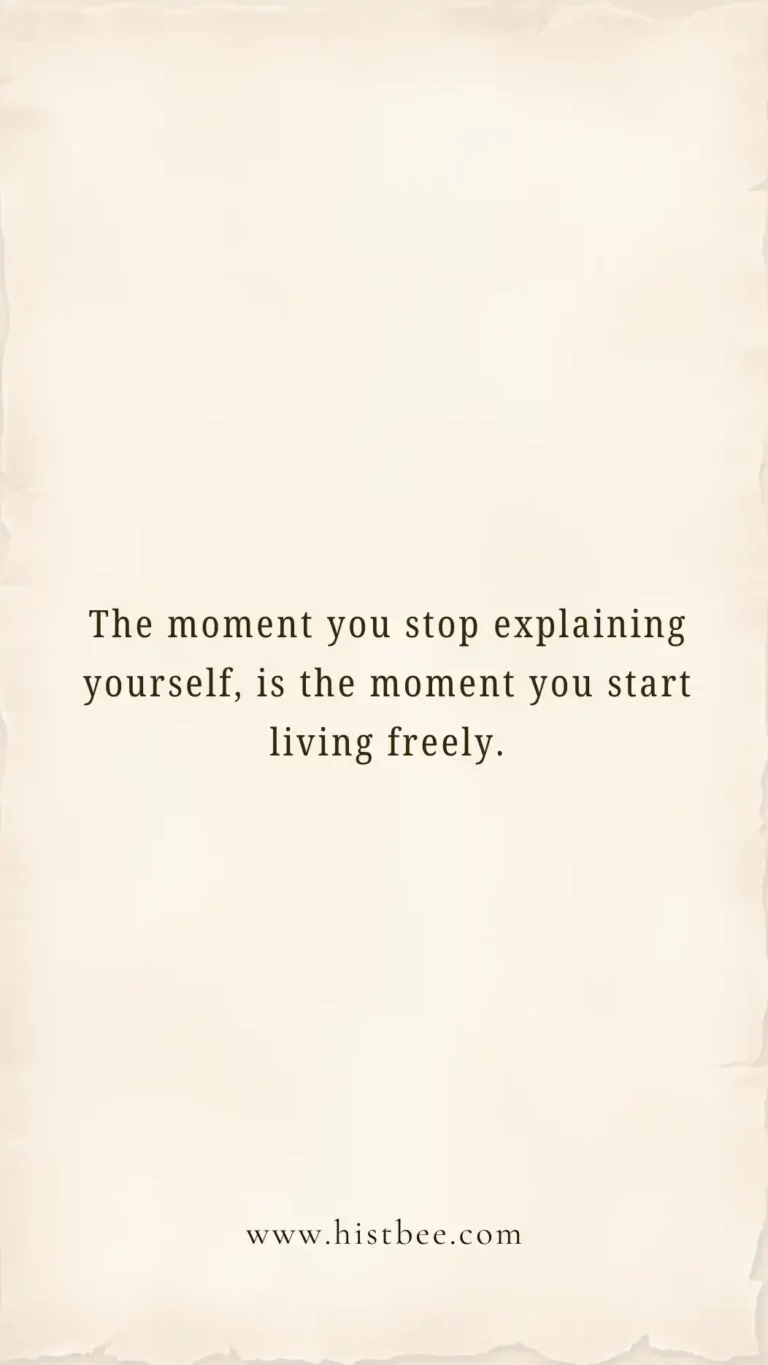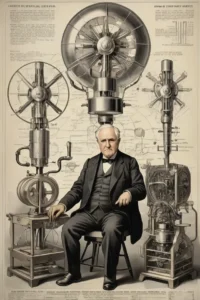Have you ever felt the weight of constantly justifying your decisions, thoughts, or emotions to others? It’s exhausting, isn’t it? Yet, many of us find ourselves stuck in this endless loop of explaining who we are, why we do what we do, and the choices we make. Here’s the truth: the moment you stop explaining yourself, is the moment you start living freely. It’s a simple yet profound idea that can transform your life.
But what does it really mean to stop explaining yourself? And how does it lead to freedom? Let’s dive into this empowering concept and explore why breaking free from the need for validation is one of the most liberating things you can do for yourself.
Why Do We Feel the Need to Explain Ourselves?
From a young age, we’re conditioned to seek approval. Whether it’s from parents, teachers, friends, or society at large, we’re taught that our worth is tied to how well we fit into the expectations of others. Over time, this conditioning turns into a habit of over-explaining ourselves.
We justify our choices to avoid judgment. We explain our feelings to gain understanding. We defend our actions to prove we’re “good enough.” But here’s the catch: no matter how much you explain yourself, there will always be someone who disagrees, misunderstands, or criticizes.
This endless cycle not only drains your energy but also keeps you tethered to external validation. You begin to live for others instead of living for yourself.
What Happens When You Stop Explaining Yourself?
When you let go of the need to explain your every move, a powerful shift occurs:
- You Reclaim Your Power
By no longer seeking approval or validation, you take back control over your life. Your decisions become rooted in your values and desires, not in what others expect of you. - You Set Boundaries
Choosing not to explain yourself is a form of setting boundaries. It sends a clear message: “I respect myself enough to not justify my choices.” This can strengthen your relationships by fostering mutual respect and understanding. - You Embrace Authenticity
Living freely means embracing who you are without apology. When you stop explaining yourself, you give yourself permission to be unapologetically authentic. - You Gain Inner Peace
Constantly explaining yourself creates stress and anxiety. Letting go of this need brings a sense of calm and inner peace. You realize that you don’t owe anyone an explanation for simply being who you are.
How to Stop Explaining Yourself
Breaking free from the habit of over-explaining takes practice, but it’s entirely possible. Here are some actionable steps to help you get started:
1. Recognize Your Triggers
Pay attention to situations where you feel compelled to explain yourself. Is it at work? With family? Among friends? Identifying these triggers is the first step toward change.
2. Practice Self-Acceptance
Remind yourself that your worth isn’t tied to others’ opinions or understanding. The more you accept yourself, the less you’ll feel the need to explain who you are.
3. Use Simple Responses
Instead of launching into lengthy explanations, practice saying things like:
- “This is what works for me.”
- “I’ve made my decision.”
- “I don’t feel the need to explain.”
4. Set Boundaries with Confidence
If someone pressures you for an explanation, it’s okay to politely decline. For example: “I understand your curiosity, but I prefer not to go into detail.”
5. Surround Yourself with Supportive People
Spend time with people who respect your boundaries and accept you as you are. Their support will make it easier to let go of the need for constant justification.
FAQs
1. Isn’t it rude to not explain myself?
Not at all! There’s a difference between being rude and setting boundaries. You can decline to explain yourself while still being respectful and kind. Remember, your life is yours to live—not a debate for others to judge.
2. What if someone misunderstands me because I don’t explain?
Misunderstandings are inevitable, whether you explain yourself or not. Trust that the people who truly care about you will seek to understand without needing every detail spelled out.
3. How do I deal with guilt when I stop explaining myself?
Guilt often stems from years of conditioning. Remind yourself that prioritizing your peace and authenticity is not selfish—it’s necessary for your well-being. Over time, the guilt will fade as you grow more confident in your decision.
Final Thoughts: Freedom Lies in Letting Go
The moment you stop explaining yourself is the moment you start living freely—it’s when you finally break free from the chains of external validation and embrace the life that’s meant for you. It doesn’t mean shutting people out or refusing to communicate; it means recognizing that your worth isn’t up for debate and that your life choices don’t require a stamp of approval from anyone else.
So take a deep breath, let go of the need to justify yourself, and step into the freedom of living authentically. Because at the end of the day, the only person who truly needs to understand your journey is you.





